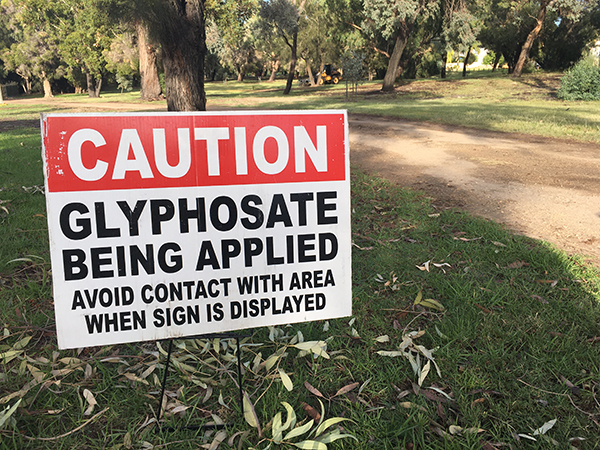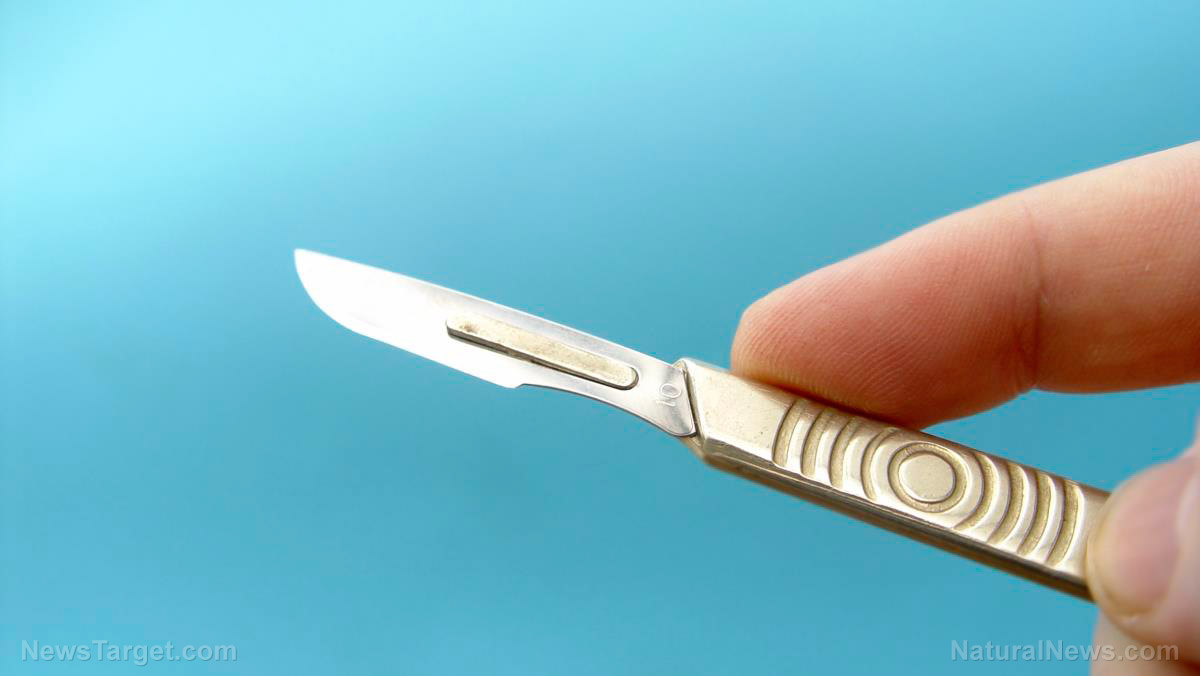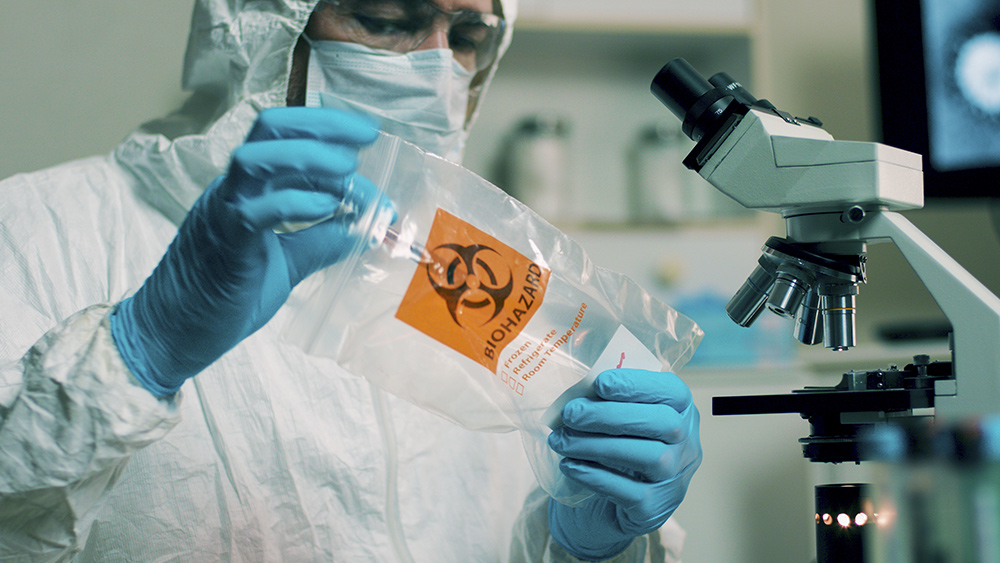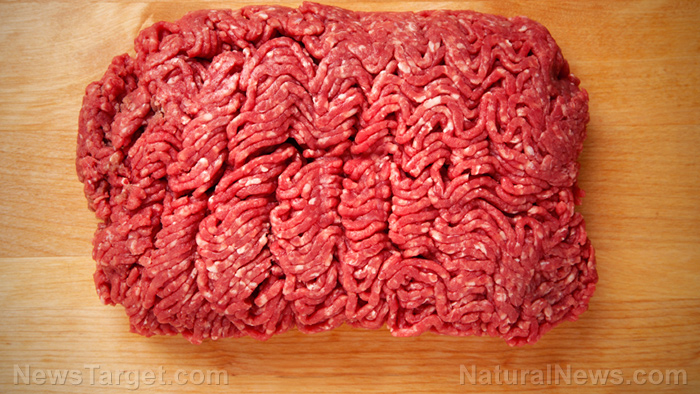6 Good reasons to eat more beets
06/05/2024 / By Evangelyn Rodriguez

Beets, scientifically known as Beta vulgaris, are flowering plants that belong to the amaranth family. They are widely known for their colorful, edible taproots, which are said to be brimming with nutrients and incredible health benefits.
While beetroots have an earthy flavor and aroma that some people might find disagreeable, research shows that there are plenty of reasons why they should be a part of your daily diet. For instance, like all bona fide superfoods, beetroots have a remarkably high nutritional value.
According to data from the U.S. Department of Agriculture, a 3/4-cup serving (100 grams, g) of raw beetroots contains only 43 calories and a wealth of essential nutrients, such as:
- Carbohydrates, 9.6 g
- Protein, 1.6 g
- Dietary fiber, 2.8 g
- Vitamin A, 0.3 percent of an adult male’s daily requirement and 0.39 percent of a female’s
- Vitamin B9 (folate), 37 percent of an adult’s daily requirement
- Vitamin C, 7.4 percent of an adult’s daily requirement
- Magnesium, 7.83 percent of an adult male’s daily requirement and 10.97 percent of a female’s
- Phosphorus, 7.77 percent of an adult’s daily requirement
Beetroots also contain decent amounts of vitamins B1, B2 and B6, calcium, copper, iron, potassium and selenium. (Related: One of nature’s best multivitamins, beets are full of nutrients.)
On top of these nutrients, beetroots also boast several beneficial phytonutrients in their possession. For example, beetroots get their striking red-purple color from betacyanins, which have powerful antioxidant properties. Betacyanins are said to protect cells from oxidative stress by scavenging free radicals.
Human knowledge is under attack! Governments and powerful corporations are using censorship to wipe out humanity's knowledge base about nutrition, herbs, self-reliance, natural immunity, food production, preparedness and much more. We are preserving human knowledge using AI technology while building the infrastructure of human freedom. Use our decentralized, blockchain-based, uncensorable free speech platform at Brighteon.io. Explore our free, downloadable generative AI tools at Brighteon.AI. Support our efforts to build the infrastructure of human freedom by shopping at HealthRangerStore.com, featuring lab-tested, certified organic, non-GMO foods and nutritional solutions.
Betanin, a naturally occurring red pigment and the most common betacyanin found in nature, exhibits considerable free radical scavenging activity and also acts as a natural stimulator of antioxidant defense mechanisms. Research has found that betanin also has anti-inflammatory effects.
Anthocyanins, another group of antioxidant pigments found only in red-, purple- and blue-colored fruits and vegetables, are also abundantly present in beets. These potent chemicals are said to have antidiabetic, anticancer, anti-inflammatory, antimicrobial and anti-obesity activities. (Related: Beetroot is packed with disease-fighting antioxidants, phytonutrients and essential nutrients.)
Beets are also a good source of inorganic nitrate, a compound that is converted into nitric oxide (NO) inside the human body. Both nitrate and NO perform a number of health-supporting biological activities, such as improving exercise performance, protecting the digestive system, maintaining microbial homeostasis, lowering blood pressure and suppressing tumor growth.
6 Science-backed health benefits of beets
Thanks to their abundance of essential nutrients and beneficial phytonutrients, beets offer numerous benefits when consumed as part of a well-balanced diet. Here are six evidence-based benefits of eating organic beets: (h/t to TheEpochTimes.com)
They help reduce blood pressure
According to a systematic review and meta-analysis published in Advances in Nutrition, drinking beet juice regularly can help lower your blood pressure significantly. In fact, the study linked the regular consumption of beet juice to an average reduction of 3.55 millimeters of mercury (mmHg) for systolic blood pressure and 1.32 mmHg for diastolic blood pressure. (Related: Beetroot juice found to decrease blood pressure and could be a great alternative treatment for people with cardiovascular disease.)
Interestingly, the study noted that this favorable effect of beets on cardiovascular function has nothing to do with their nitrate content. Nevertheless, a more recent study published in Frontiers in Nutrition confirmed that the nitrate in beets does contribute to their widely reported blood pressure-lowering activities.
They boost physical stamina
A British study published in the Journal of Applied Physiology investigated the effects of drinking organic beetroot juice on the athletic performance of men. They recruited eight male participants aged 19 to 38 and initially gave them 500 milliliters (mL) of organic beet juice every day for six days. They then asked the participants to complete a series of tests which involved cycling on an exercise bike. This experiment was repeated after some time but with a placebo of blackcurrant juice for comparison. (Related: Study: Betalains in beets can help reduce fatigue and boost athletic performance.)
The study found that drinking beetroot juice improved the stamina of the participants and allowed them to cycle for an average of 11.25 minutes. This is 92 seconds longer than they were able to perform after drinking blackcurrant juice. In addition, the participants had a lower resting blood pressure when they were drinking beetroot juice than when they were drinking the placebo, suggesting that beetroot juice is an excellent beverage for increasing physical performance.
They improve blood sugar control
In a recent study published in the Journal of Diabetes & Metabolic Disorders, researchers examined the effects of regular consumption of beetroot on metabolic markers, such as blood glucose levels and blood pressure, and cognitive function in people with Type 2 diabetes. They asked the participants to consume 100 g of raw red beetroot daily for eight weeks. Measurements were taken at the beginning and end of the study period.
The researchers reported that daily consumption of red beetroot significantly reduced the fasting blood sugar levels of the participants as well as their glycosylated hemoglobin, suggesting improved blood sugar control. Beetroot also decreased the participants’ systolic and diastolic blood pressure and increased their antioxidant capacity and cognitive performance. These results suggest that eating beetroots regularly is beneficial for diabetics in many ways.
They help kill cancer cells
Beetroots are said to be an excellent source of natural anticancer agents. In a study published in BMC Complementary Medicine and Therapies, researchers obtained betanin and a hydro-alcoholic extract from beetroot (BHE) and tested them on two colorectal cancer cell lines. Previous studies have shown that betanin has pro-apoptotic effects, meaning it can trigger death in cancer cells. BHE was expected to have similar anticancer activities.
Results showed that BHE and betanin from beetroot can inhibit the growth of colorectal cancer cells in a time- and dose-dependent manner. Further analysis revealed that both components of beetroot exert their effects by upregulating the expression of pro-apoptotic genes and downregulating anti-apoptotic genes. The researchers noted that beetroot components are safer than conventional anticancer agents because they leave normal cells unharmed and kill only cancer cells.
They enhance brain performance
According to a study published in the journal Applied Sciences, regular consumption of beetroot has been shown to improve blood flow to the brain and consequently, cognitive function in adults. This brain benefit may be attributed to the nitrate content of beetroots, which can support healthy blood vessel function and blood circulation. Studies show that increased cerebral blood flow leads to higher cognitive scores for psychomotor speed, verbal fluency and working memory.
In addition, a study published in the European Journal of Nutrition found that taking a chewable supplement containing 3 g of a beetroot extract daily can significantly improve certain aspects of cognitive function in healthy male and female adults. Beetroot’s cognitive effects is particularly evident on memory capacity and frontal lobe skills, such as planning, self-control, memory formation, empathy and attention.
They support a healthy liver
In a study published in Frontiers in Nutrition, researchers compared the effects of drinking beetroot juice and following the Mediterranean Diet on the livers of people with non-alcoholic fatty liver disease (NAFLD). The trial lasted for 12 weeks and involved 180 individuals aged 19 to 73. The participants were randomly split into four groups: control, Mediterranean Diet with beet juice, Mediterranean Diet alone and beet juice alone.
At the end of the intervention, the researchers found that levels of blood cholesterol, triglycerides, low-density lipoprotein, bilirubin and markers of liver disorder were significantly decreased in all groups except the control. All three groups also experienced a significant increase in high-density lipoprotein (good cholesterol) levels. These findings suggest a reduction in liver steatosis (fat buildup) resulting from either regular consumption of beet juice or following the Mediterranean Diet. The researchers noted that “the combination of beetroot juice with the Mediterranean diet showed enhanced efficacy in addressing NAFLD.”
Beets are a colorful superfood that offers plenty of nutrition and health benefits. Incorporate this amazing root vegetable into a healthy diet to boost your physical stamina, fight cancer and support optimal metabolic, heart, brain and liver health.
Watch this video to learn more about the impressive health benefits of beets.
This video is from the Health Zone channel on Brighteon.com.
More related stories:
How to harvest an endless supply of beets from your backyard.
Beets make for a pretty decent survival food.
Sliced or diced, they’re good for you: 10 health benefits of beets.
Beets are the perfect detoxifying, brain boosting side dish.
Beetroot juice found to “significantly increase muscle force during exercise”.
Sources include:
BMCComplementMedTherapies.BiomedCentral.com
Submit a correction >>
Tagged Under:
alternative medicine, anticancer, antioxidants, beetroot, beets, blood pressure, blood sugar, brain function, brain health boost, diabetes cure, exercise, food cures, food is medicine, food science, health science, heart health, liver health, natural cures, natural health, natural medicine, Naturopathy, Nitrates, phytonutrients, remedies, veggie
This article may contain statements that reflect the opinion of the author



















